Cloud computing has had far-reaching impacts on businesses around the world. Cloud computing services have come to play an integral role in a huge variety of enterprises and other organisations, enabling them to reap a host of rewards: these can include lower costs, improved productivity, and enhanced efficiency, for example.
Many different types of cloud services exist, with terms like public cloud, private cloud and hybrid cloud becoming part of many companies’ vocabularies.
One such cloud-based service that’s become increasingly important is customer relationship management or CRM. In a nutshell, this term refers to the power of customer interactions and data. This can have a major bearing on several other areas.
In this guide, we’ll provide you with a detailed and comprehensive overview of CRM. Areas we’ll cover will include what to look out for when choosing a CRM system and the different types of deployment models available.
We’ll start by defining customer relationship management and explaining how it works. Then we’ll look at its respective benefits for businesses undertaking a digital transformation, before moving on to discuss the various aspects of CRM. We’ll also look at why you should choose a cloud-based CRM system before discussing some implementation challenges.
Finally, we’ll finish off by taking a closer look at RingCentral’s own CRM platform, and we’ll examine some of how it might benefit your business.

What is Customer Relationship Management (CRM)?
Customer relationship management is a process that brings together various strategies, technologies, and techniques to manage customer data, needs and interactions. It helps organisations analyse their interactions with customers, ensuring that they better understand what those customers are looking for.
What is a CRM system?
A CRM system is used to support various other business functions. These include team communication, social media, and sales management and provide more detailed insights into individual customers’ needs and requirements. It also provides simple, straightforward functionality and helps to streamline workflow.
The main objective of CRM software is to facilitate better relationships, first and foremost with customers and service users, and suppliers and colleagues. It brings customer information from various sources together; these include different channels and points of contact such as email, social media, live chat and marketing campaigns.
Another advantage of CRM is that it helps to improve standards of customer service, which is something we’ll discuss in more detail subsequently. It can supply your customer-serving salesforce with detailed data on individual customers and clients as they take their phone calls, including their previous purchase history and contact information.
There are numerous CRM providers to choose from. Gartner’s Magic Quadrant provides a thorough analysis of the leading CRM vendors, ranking them according to a range of customer engagement and service criteria.
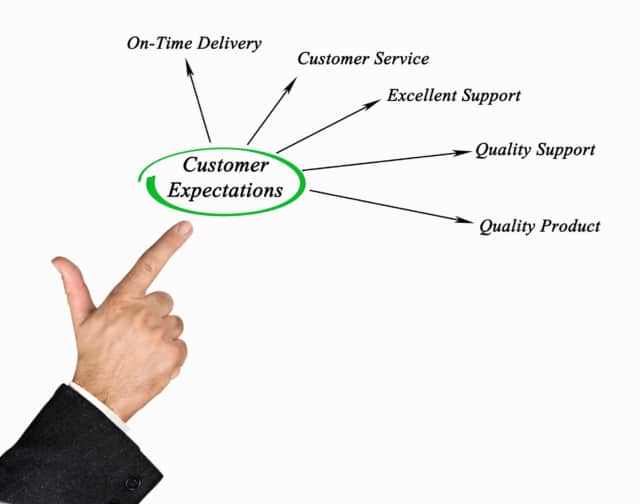
How CRM Works
CRM tools can greatly benefit large and small businesses (including startups) alike. In particular, they make the lives of your sales team and marketers much more straightforward, providing them with easy access to critical information which helps them to understand better what customers need.
Best of all, it enables your salespeople to deliver even better customer support. At a time when the customer has never been more powerful, this matters a great deal.
But how exactly does customer relationship management software work? What functionalities does it provide?
Let’s take a closer look at customer relationship management systems, with particular attention to the main functions they provide and how these might help your business.
Sales automation
CRM technology can simplify the task of securing new customers (and hanging on to them for the long haul) by tracking customer interactions and making follow-up easier concerning prospective new leads and potential customers.
Artificial intelligence
Some CRM software comes equipped with AI. This can offer a range of benefits, including more effective pattern recognition, which can draw on past successes to shape more effective future sales strategies.
Analytics
CRM tools can help your marketing teams boost customer satisfaction by providing better, more detailed analytics. The right metrics can help to ensure that marketers craft targeted marketing campaigns informed by data-based insights.
Lead management
CRMs can track leads, with new information added to the system either manually or automatically. This makes it easier to keep tabs on lead generation. It also facilitates better sales pipeline management and forecasting and ensures that the relevant CRM data is easily accessible when it’s needed. New sales opportunities can also be ranked through the use of lead scoring.
Workflow automation
It’s easy for sales reps to become overburdened by their various responsibilities. CRM systems help to lighten this burden by optimising business processes, automating menial processes, and freeing up your team members to perform more complex tasks.
Marketing automation
Time-consuming, tedious tasks can distract your marketing team from more important things. With CRM software, many of these tasks can be automated away. For instance, email marketing and social media posts can be sent out automatically according to your marketers’ schedule specified in advance.
The upshot of all this is that CRM can help your business provide a better customer experience tailored to individual customers’ needs. What’s more, it’s also more consistent across different touchpoints and channels. This, in turn, all goes towards boosting that all-important bottom line and resulting in higher profitability.
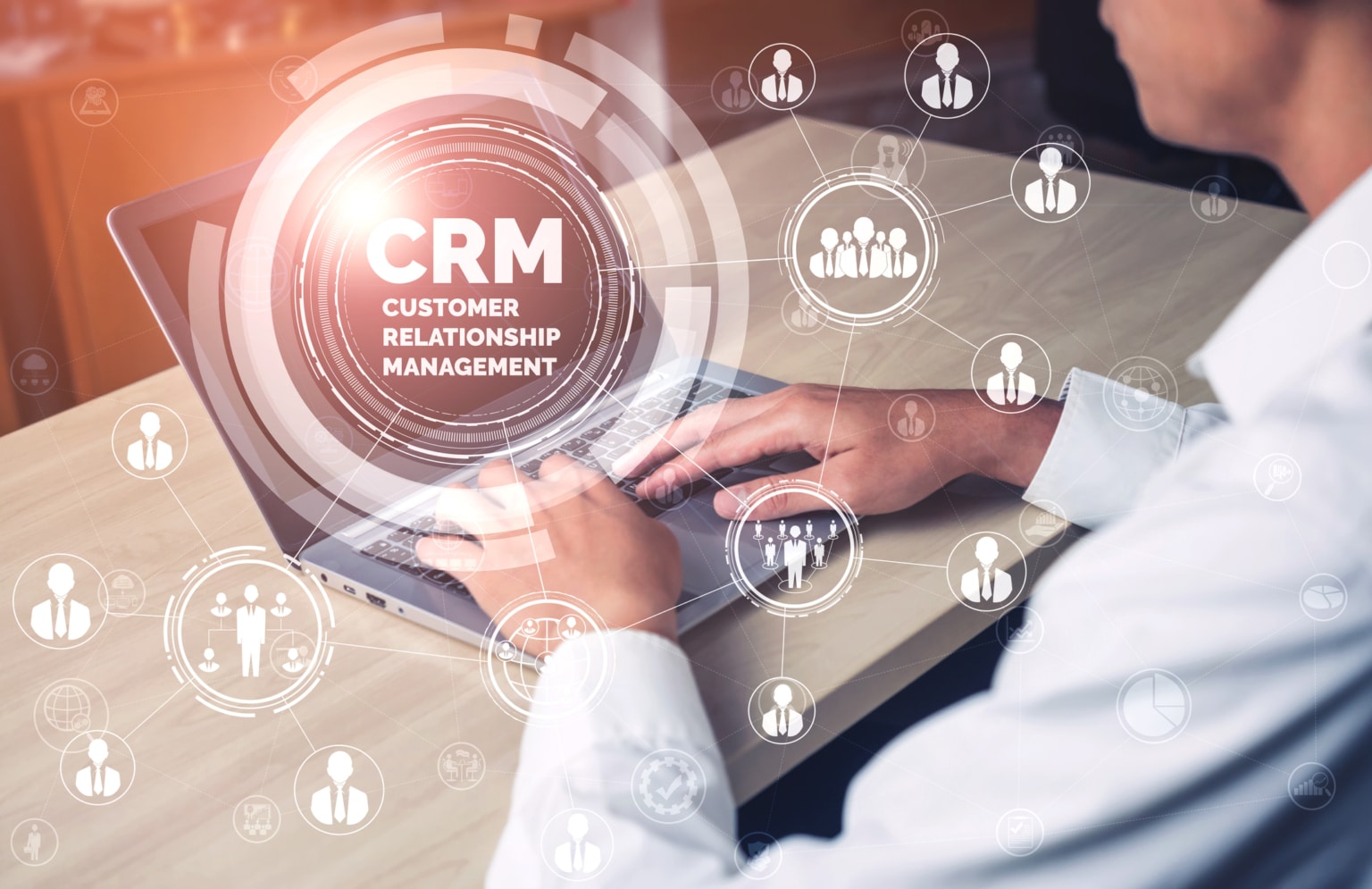
How Does CRM Benefit Businesses?
So, now we’ve provided an overview of customer relationship management systems, how they work, and what they do. We now need to move on and discuss exactly how they can benefit businesses. We’ve outlined some of these benefits, but here we’ll go into more detail about the most important of them.
Improve customer service
In today’s consumer environment, customer experience is absolutely crucial. It’s not just about providing customers with great products and services, and it’s also a matter of ensuring their whole experience of engaging with your business is as smooth, straightforward, and simple as possible.
A stable customer base is a secret to success in business. You need to ensure that your business turns those new leads into regular, long-term customers.
Providing attentive customer support makes a big difference here.
A sales CRM makes that job much easier for your sales team. This is because it provides them with finely-detailed information about your customers, so they have a clearer idea of what they’re likely to be looking for.
Increase sales
Of course, improved standards of customer service can do a lot to drive more sales. After all, a customer who has a pleasant experience of using your business and its services is much more likely to come back time and again.
Because CRM helps you deliver improved customer service, it can also help you increase sales. We’ve discussed already how CRM can streamline the lead generation process and enable your sales team to prioritise the most promising sales leads. It can also facilitate marketing campaigns that are more precisely targeted to the right customers.
Retain more customers
CRM software helps to foster stronger customer loyalty by enabling you to deliver a better service. As we’ve noted, it provides detailed data on customer needs and preferences and allows you to track your interactions with individual customers across different touchpoints. This helps them, in turn, to understand the customer lifecycle as a whole.
If customers know they can rely on your business to provide them with diligent and attentive customer service, the chances are that this will translate into greater customer loyalty.

Better analytics
CRM brings large quantities of relevant customer data in the same place, making it much easier to interpret. There wouldn’t be much point in having lots of data if you weren’t able to make good use of it – and this is where CRM tools come in.
As CRM provides better analytics, it means your team has a much more transparent overview of the entire sales process. Equipped with this enhanced understanding of the sales cycle, they can work more effectively to enhance customer satisfaction.
Higher efficiency
CRM allows marketers to automate some tasks which would otherwise take up a considerable amount of their time. With workflow, marketing, and salesforce automation, your staff members are more accessible to tend to customers’ needs instead of being bogged down.
Better knowledge sharing
CRM systems provide teams with a plethora of detailed customer data, which they can access at the touch of a button. This means that all relevant team members can access data as and when they need it, so the information contained therein is shared between colleagues much more effectively.
More transparency
Transparency and accountability are vital to effective collaboration within an organisation, and CRM helps to enhance both. Client and team member activity is tracked within the same platform, so colleagues can see what’s been done, what still needs to be done, and who’s been tasked with doing it.
This way, team members can keep one another accountable, while everyone has simple access to the information they need. This allows for much more effective oversight.
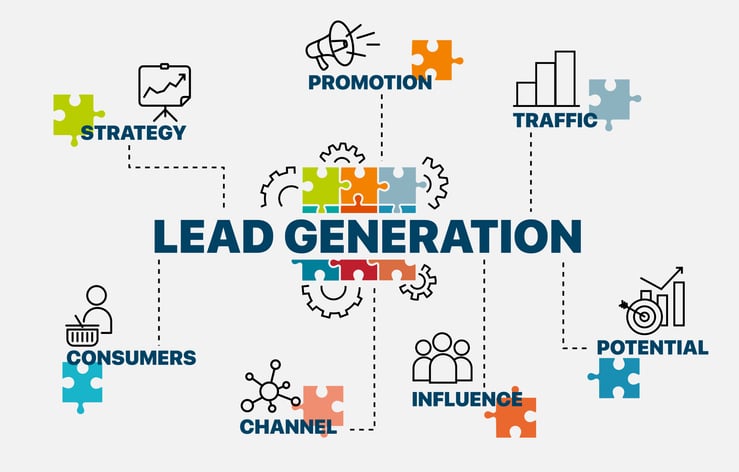
How CRM benefits various business departments
Now that we’ve outlined the potential benefits CRM can offer businesses in general, we need to break that down and look, in particular, at the advantages it can provide to specific business departments. We’ll concentrate on four such departments here: marketing, customer service, supply chains, and human resources.
Marketing
CRM is best known as a marketing tool, so its benefits for marketing teams are significant. CRM tools such as Salesforce and Hubspot allow for the centralisation of leads and customer data. This way, marketing teams can find the information they need (including, for example, contact information) with the minimum of hassle.
As well as ensuring better project management, CRM also facilitates improved communication and transparency among colleagues and makes it easier to analyse customer data. CRM tools can also be integrated with other systems and devices, including Gmail, Microsoft Outlook, and LinkedIn.
Customer service
It can be difficult to keep customers happy and tend to their needs when you’re struggling to find the relevant information. CRM tools put an individual customer’s entire interaction history at the hands of your sales and marketing teams. This thereby enables them to provide more agile customer service through better contact management.
As we’ve discussed, excellent customer service such as this can do a lot to ensure that first-time customers become regular, long-term customers. In addition to offering improved retention, CRM data can also be used to devise more objective, consumer-sensitive pricing.
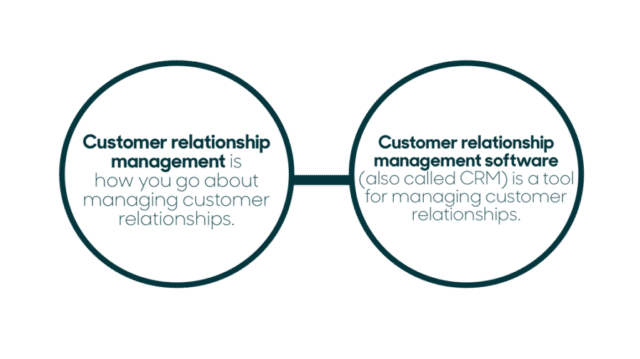
Supply chain
Customer data from a CRM system can also be used to influence supply chain decisions. For example, CRM data can shed more light on supplier choices, consumer demand for individual products, seasonal fluctuations in order, and shipping.
With CRM systems, businesses are better equipped to meet consumer demand because they have a more thorough understanding of it.
Human Resources (HR)
There are some CRM tools, such as Zoho, which can be integrated with HR solutions. Increasingly, many firms are using CRM systems to assist with human resources management. This is because CRM can automate specific tasks, including in the recruitment process. It can also reduce bias in recruitment through objective candidate scoring.
CRM also allows HR managers to simplify payroll management and generate detailed and accurate employee reports. It can also be used to monitor employee sentiment; for example, this might include the tone of client emails and the speed of responses.
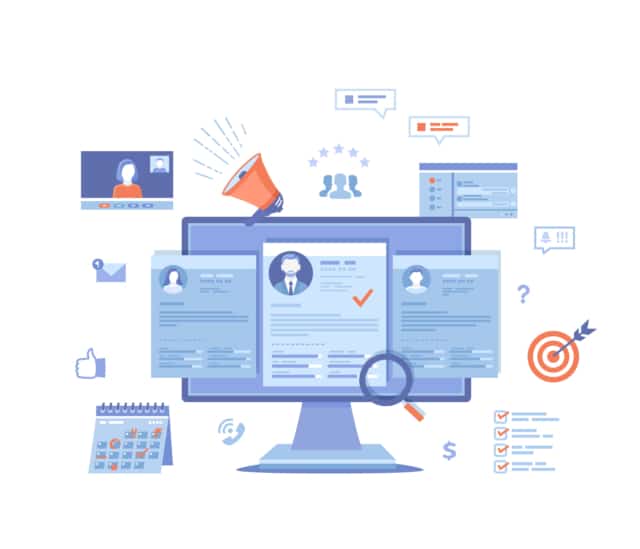
Other aspects of CRM
We’ve already covered quite a lot of ground about CRM, but there are some other aspects that we need to discuss here. These include the different types of CRM technology – cloud-based, on-premises, and open source – and how it can be used both as a strategy and a process.
CRM as a technology
There are, as we’ve just noted, three general categories of CRM solutions. These are cloud-based CRM, on-premises CRM and open source CRM. Let’s look at each of them in turn.
-
Cloud-based CRM
Cloud-based CRM is delivered via software as a service (SaaS). This means that all data is stored externally, at a third-party data centre, accessed remotely by the appropriate personnel. Clients typically pay for cloud-based CRM on a subscription basis. Examples of cloud-based CRM services include Zendesk, Salesforce, and Hubspot.
-
On-premises CRM
With on-premises CRM, the organisation using the software has responsibility for providing servers on which to store it (as well as covering the cost of upgrades). Firms buy the licence for on-premises CRM software upfront, rather than paying subscription fees as with cloud-based CRM. On-premises CRM is typically best suited to organisations and businesses with particularly complex CRM requirements.
-
Open source CRM
As the name indicates, open-source CRM involves making the source code of the software publicly available. This allows for easy customisation, as companies using open source CRM platforms can make changes to the relevant code without incurring any additional cost to themselves. The complexity of deploying open source CRM can vary quite widely according to the code itself and the organisation’s needs using it.
CRM as a strategy
We generally think of CRM as a technology, but it’s also worth thinking about it as a philosophy or strategy. The point of CRM is that it allows us to leverage customer data to serve the customer’s needs more effectively. The insights contained within this data potentially give us valuable insights into what consumers want from our businesses.
The secret to CRM lies in its name – it really is about customer relationship management. The needs of the customer must, therefore be paramount. Businesses must be prepared to apply what they learn from CRM data to deliver unforgettable customer experiences.
CRM as a process
We may also think of CRM as a process. In other words, the approach businesses adopt when it comes to fostering close and enduring customer relationships. This can encompass a wide variety of strategies and activities. It’s easy to be mechanical with data, and assume that we have to apply what we learn from it in a blanket, impersonal manner.
In fact, we should take the opposite approach. CRM data is useful because it allows us to get a granular view of what individual customers are looking for – it gives us a better idea of the diversity present in our customer base. Your processes should reflect this.
Why choose a cloud-based CRM system?
We discussed earlier the transformative impact of cloud computing. We rely on lots of services every day, including our personal data, have already migrated to the cloud. Here, we’ll focus on cloud-based CRM and analyse some of its most important advantages to businesses.
Easy deployment
Compared to on-premises CRM and open source CRM, cloud-based CRM is straightforward to deploy. Businesses don’t have to provide and maintain their own data servers and instead use those of a third party, thus saving them considerable expense.
All you need to use cloud-based CRM is an internet connection. Once you’ve signed up and paid the appropriate subscription fee, you’re free to start using the software.
Automatic software updates
Another important benefit of cloud-based CRM is that any software updates are automatic. Your service provider will take responsibility for this. There may sometimes be some downtime involved whenever the software or its associated systems are updated, but your provider should communicate any such outages in advance.
This also means that everyone concerned will be using the same software version, avoiding any inconsistencies between different users.
Cost-effectiveness and scalability
We’ve already touched on the cost-effectiveness of cloud-based CRM, but it’s worth emphasising it again here. With cloud-based CRM, businesses don’t have to worry about covering the costs of setting up their own on-premises servers and keeping them running. This can involve a huge outlay, and for startups, in particular, it’s likely to be prohibitively expensive.
Cloud-based CRM also provides more effortless scalability and flexibility, as it can be tailored to suit individual firms’ specific needs. For example, small businesses can add new features to their cloud CRM software to expand and take on new responsibilities.
Work from anywhere, on any device
We’ve heard a lot about the impact of the remote work revolution. With more and more people working from home – something set to become a long-term phenomenon is important to ensure that everyone has access to the data they need, whether it be customer information, an API or CRM templates.
Because cloud-based CRM software can be accessed from anywhere (with the appropriate credentials), it’s a natural fit for remote working. It again provides a degree of real-time flexibility than on-premises alternatives can’t match.
Increased collaboration
As we’ve discussed, Cloud-based CRM can adapt and evolve to suit a particular business or other organisation’s changing needs. As working patterns change, it becomes all the more important to ensure reliable team collaboration between colleagues. Whether you’re in eCommerce or some other sector, this is something you need to be prepared for.
The easy flexibility of cloud-based CRM, as one of its primary selling points, helps team members stay connected with colleagues and customers alike, wherever they happen to be.
CRM challenges
There are some potential challenges that CRM solutions can pose. As with any technology, it needs to be used appropriately. Too many firms invest in new technologies and expect them to provide a miracle cure. Before investing in CRM, you must ensure that you understand its purpose and what it can do for your business.
In particular, organisation and efficient management are crucial to getting the full benefits of CRM. Your customer data should be as complete as possible; you should take the time to eliminate any duplicate data that might be hanging around. Likewise, customer information (such as contact information) must be as up to date as possible.
Customer data is outdated, incomplete, or otherwise unreliable, and this can harm the customer experience, hindering the overall standard of service they receive. This can, clearly, rebound on businesses through negative customer reviews.
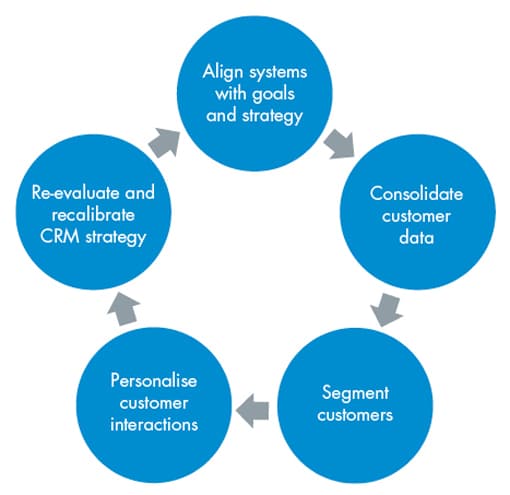
Why use RingCentral’s CRM platform?
RingCentral can save your business a great deal of hassle by putting an end to app switching by bringing together team messaging, video conferencing, and business phone calls together in a one-stop unified communications solution.
With RingCentral, you can also integrate your phone system with services from more than 200 other leading firms, including Salesforce, as well as Google and Microsoft. This offers a range of benefits, including enhanced productivity, improved customer support, automation, and better customer relationship management, by automating your sales cycle.
RingCentral for Salesforce provides seamless integration between your RingCentral app and CRM system. This ensures that your team has even more accessible access to vital customer information, along with the ability to build flexible reports and customer interaction dashboards. It also provides click-to-call, call logging, and meeting scheduling from within Salesforce itself.
Originally published Feb 15, 2021, updated May 04, 2021

